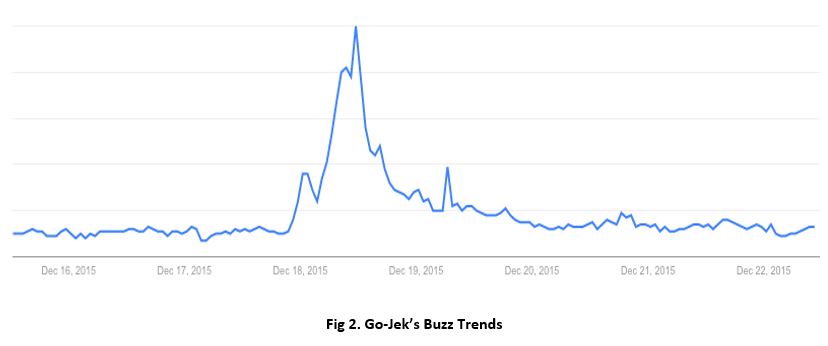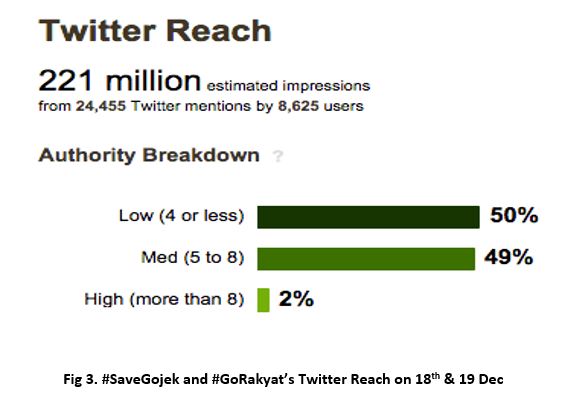How Social Media Is Influencing National Policy: A Case study from Indonesia
Background
On December 18, Transportation Ministry of Indonesia, led by Ignatitus Jonan had banned the operation of the country’s app-based transport service providers. The minister claimed that as these ride hailing app do not fulfill the requirements for being public transportation so we are banning them. The general director of land transportation, Djoko Sasono, said that the operation of application-based transportation did not meet the requirements of a 2009 law on traffic and public transportation and a 2014 government regulation on public transportation. Djoko said he did not mind start-up businesses. Still, he stressed that it would be a problem if private vehicles were used as unlicensed public transportation.
He had ordered police to enforce the implementation of an existing law that gives a narrow definition of public transport which is stated below
“The requirements of public transportation are that the vehicles have at least three wheels, have legal standing and possess a public transportation business permit”
This should have meant a closure of car hailing apps such as Uber and motorbike taxi hailing apps like “Gojek” which in recent times have emerged as a big respite for consumers in crowded cities with totally broken public transportation
Social Media Erupts
The banning of app-based transportation of any form, led to public uproar, which was heavily dominated by social media. Thousands of people came in support of these apps-based transport service providers.
Our social media trend analysis discovered that #SaveGojek hashtag was a trending topic on Indonesian Twitter on Friday (18/12) morning. Go-Jek also received the highest buzz than other brand (for the date range 18-19/12). Since People see these apps as great innovations that have eased their lives in Indonesia, especially Jakarta, which is infamous for worst traffic snarls in the world, so a public uproar was ominous but it was the massive support for Gojek in terms of social buzz and popular hashtags that stood out viz a viz other brands.
Gojek Emerges as the standout brand


Since Go-Jek launched its smartphone app in January, the transportation company, established in 2010, has boomed in popularity not only among customers but among ojek drivers as well. The app was later followed by the GrabBike app from Grab Taxi. The competition between the two has been marked by a tough tariff war, but in terms of brand name, Go-Jek’s wild popularity in Indonesia has surpassed even Uber, a ride-sharing app from Silicon Valley, in the US, which has a similar business model but offers car taxis. Gojek has already gained maximum brand traction through its use of innovative digital marketing tactics. For a more details regarding this please refer our earlier blogpost
http://www.tothenew.com/blog/how-go-jek-is-disrupting-the-marketing-landscape-in-indonesia/
Indonesian Government Does a U-Turn
The outpour in support of ride hailing apps was so unprecedented that On Friday (18/12) afternoon, President Jokowi personally expressed his objection to Jonan’s decision, saying that the transportation services were being used by masses. After that, Jonan had to withdraw the ban on Friday afternoon.
Go-Jek’s founder and CEO, Nadiem Makarim, also expressed his gratitude that a Jonan’s circular banning app-based transportation had been withdrawn, calling it a victory for the democratic economy.
Gojek leverages U-Turn to promote its Twitter Hashtag #GoRakyat
Staying true to their brand, Gojek didn’t miss the opportunity to leverage the U-Turn to promote their Hashtag on Twitter. CEO Nadiem dropped in a personal message
“Dear lovely GO-JEK users, President Joko “Jokowi” Widodo just answered our prayers by cancelling the Transportation Minister’s circular regarding the prohibition of app-based ojek and online taxi services. Thank you very much for your support on social media. We will not forget that for the most part this victory was thanks to the public’s voice, which has risen to defend our existence. This is evidence of the victory of the democratic economy. We invite all Go-Jek users and drivers to celebrate the Jokowi-JK decision through social media with the #GoRakyat,” Nadiem sent this message to all Go-Jek’s customers.
Nadiem added that the withdrawal guaranteed the welfare of the families of around 200,000 drivers. He also thanked President Jokowi through Go-Jek’s twitter account for his actions to protect the democratic economy, which he said was the basis of Indonesia’s strength.
Based on Nadiem’s message, besides #SaveGojek, numerous people also showed their gratefulness on Twitter using #GoRakyat.

Conclusion
It is indeed true that with the advent of social media, people are beginning to leverage it to voice not only their opinion but can also start mass movements against regressive government policies. But yet at the same time it also offers brands a great pedestal to stand out amongst their peers through the use of quirky digital media campaigns and PR. It is interesting to note that modern day Consumer Internet Companies which have an app based business model are at the forefront of leveraging such opportunities in their campaigns and gain instant Brand lift.



